The Extraordinary Lengths YouTube, Google and GoFundMe Go to Ignore and Profit from Libel, Privacy Violations, Cyber-Bullying, Copyright Infringement, and Online Incitement to Harass
When platform policies are only as strong as the last customer service chat, it’s no longer about free speech—it’s about free reign to abuse, harass, defame, and destroy under corporate protection.
(UPDATE: Since the publication of this article and subsequent sharing with the Copyright and Legal Channels at YouTube, all previously reported videos infringing copyright, privacy, misinformation, harassment and cyber-bullying were removed as of October 10, 2025. Six total video removals within a 90 day period. Yet the infringing channel remains active.
Inquiries to GoFundMe remain unresponsive).
When Platforms Choose Profits Over Policies
For years, Google (YouTube) and GoFundMe have assured the public that their Terms of Service and repeat‑offender policies are robust tools for protecting creators, victims of harassment, and intellectual property holders. Yet the reality emerging from discovery in the ongoing lawsuits between Chicago Corner, LLC and Hard Lens Media (HLM) paints a damning picture: both platforms knowingly allowed bad actors to weaponize their systems for harassment, defamation, and copyright infringement—all while monetizing the resulting traffic.
YouTube’s “Three Strike” Policy Is a Lie
According to YouTube’s own policies, any channel accumulating three copyright strikes within 90 days is terminated under its repeat infringer policy, which is supposed to implement the DMCA’s safe harbor requirements under 17 U.S.C. §512(i).
What Online Service Providers (OSPs) Must Do to Qualify
OSPs must register a designated agent with the U.S. Copyright Office to receive notices of claimed infringement.
Implement a Policy to Terminate Repeat Infringers:
They must have and enforce a policy for removing users who repeatedly infringe copyrights.
Act Expediously on Notice:
Upon receiving a proper notification of a copyright violation, the OSP must act quickly to remove or disable access to the infringing material.
Lacking Actual Knowledge or Benefit:
The OSP must not have actual knowledge of the infringing activity and must not derive a direct financial benefit from it.
Provide a Counter-Notice Process:
A process must be in place for users to challenge a takedown if they believe the material was removed improperly.”
But internal chat records obtained during discovery show that HLM’s president Kit Cabello successfully manipulated YouTube’s live support chat to bypass this policy. Despite at least three valid DMCA strikes and a pending federal copyright lawsuit, Cabello persuaded YouTube agents to reinstate the channel anyway.
Rather than escalate to YouTube Legal, support agents reinstated HLM’s account through ad‑hoc customer service decisions. This not only violated YouTube’s own Terms of Service but undermined its legal safe harbor defense—because §512 immunity only applies when platforms adopt and “reasonably implement” a repeat infringer policy.
Even more troubling, once reinstated, HLM used the restored channel to mock the takedown process, incite harassment of the plaintiffs, and direct traffic to a defamatory GoFundMe campaign, all while new copyright claims regarding written authorship remained unresolved.
YouTube’s Blurring Excuse Is Not a Legal Defense
In several videos that were flagged for both privacy violations and copyright infringement, YouTube offered a grotesque non-solution: blurring private email and text screenshots —while allowing the rest of the video’s defamatory, harassing auditory narrative to remain live.
This maneuver isn’t just cynical—it’s a direct contradiction of the spirit and letter of Section 512 of the DMCA. Blurring part of a stolen or defamatory video does not eliminate the copyright infringement, nor does it protect victims of online incitement or cyber-harassment. In fact, it empowers bad actors to leave content up just long enough to damage reputations and continue raising funds on platforms like GoFundMe, who then also turn a blind eye.
GoFundMe: Enabling Defamation as a Business Model
Meanwhile, GoFundMe hosts the campaign “Help Kit & Daniel Fight Unfair Lawsuits,” which mischaracterizes the litigation as “frivolous censorship” and falsely accuses the plaintiffs of “weaponizing” trademarks, harassment, and “mocking family deaths”—claims flatly contradicted by court records and deposition testimony.
Despite multiple detailed reports to GoFundMe Legal citing violations of TOS Section 8.02 (“Fundraisers that are misleading, inaccurate, dishonest or impossible”), GoFundMe has allowed the campaign to remain. Even after being notified of these facts, GoFundMe has done nothing. Instead, the platform allowed campaign organizers to update their posts to maintain donations while still containing new defamation and misinformation, as shown in internal emails between GoFundMe and Chicago Corner. The organizers themselves have boasted publicly as well as in sworn depositions about GoFundMe staff working with them to “come into compliance” without removing defamatory statements.
The result: a fundraiser that continues to mislead donors, incite harassment, and spread misinformation indexed by Google search—all while GoFundMe collects its percentage.
Evidence from Discovery: A Pattern of Abuse
The case files and deposition excerpts tell a consistent story:
Unpaid labor & IP abuse: Luepker testified that Chicago Corner contributors, including Jerry Vasilatos, Edward Heller, and Kira Macoun, were never paid for producing Chicago Corner videos, and there were no written agreements for key works now at issue.
Harassment disguised as “opinion”: Posts and broadcasts have included personal attacks and mischaracterizations of ongoing litigation while directing audiences to the fundraiser claiming supporters are fighting for “free speech”; not legitimate copyright, defamation or labor department claims.
The Larger Pattern: Platforms That Enable Abuse
This isn’t just a one-off case of platform negligence. It’s a business model:
YouTube profits from the engagement and ad revenue generated by inflammatory videos—even when flagged for DMCA and privacy violations.
GoFundMe profits from donations raised through defamatory campaigns—even when repeatedly notified of falsehoods.
Both platforms invoke “neutrality” while quietly offering special access or compliance “workarounds” to favored users.
For independent creators or whistleblowers, this creates a chilling paradox: platforms market themselves as safe harbors, but in practice, they’re safe harbors for abusers. And as the evidence shows, these abuses were deliberate, sustained, and profitable.
The Legal Stakes Under 17 U.S.C. §512
Under the DMCA, a platform’s immunity depends on adopting and reasonably implementing a repeat infringer policy. Evidence that YouTube reinstated a channel after three strikes, in active litigation, at the request of the infringer, directly undermines its safe harbor claim.
Blurring faces or “partial compliance” doesn’t restore immunity. Nor does allowing a fundraiser with knowingly false statements insulate GoFundMe from potential tort liability when the campaign materially contributes to ongoing defamation and harassment.
The Pattern of Protection: Platforms That Enable Abuse
The facts are no longer up for debate. YouTube and GoFundMe have been repeatedly alerted—with evidence—about serious platform abuse:
False claims of “free speech” being used to deflect legitimate copyright and defamation litigation.
Videos weaponized to spread retaliation, doxxing, and false narratives.
Fundraising off of libel, under the pretense of transparency, while omitting material facts about the lawsuits.
Repeated TOS violations allowed to persist while the victims are forced to go through bureaucratic black holes to be heard.
As of today, these platforms continue to profit from the exposure, engagement, and fundraising enabled by false content.
This isn’t just about Hard Lens Media. This is about the broken enforcement mechanisms of two of the world’s largest tech platforms and their willingness to let creators be targeted so long as content continues to generate traffic and profit.
What Does This Mean for the Public?
If YouTube can ignore DMCA law, court notices, and its own policies, and if GoFundMe can allow campaigns to raise tens of thousands of dollars through defamation, what protections are left for independent creators, journalists, or activists who are being harassed?
The answer is: none, unless systemic reform or court intervention compels accountability.
This is not a matter of policy confusion—it is a matter of selective non-enforcement and corporate willful blindness. And it is precisely this behavior that allows disinformation, harassment, and character assassination to flourish in plain sight.
Demanding Accountability
YouTube MUST re-evaluate its compliance with federal DMCA law and immediately suspend channels that have abused the platform during pending litigation.
GoFundMe MUST take down campaigns that contain knowingly false and defamatory statements about legal matters and individuals under court protection.
Journalists, academics, and digital rights advocates MUST investigate this systemic pattern across platform ecosystems, beyond just this one case.
If your policies mean nothing in practice, then your platforms are nothing more than tools of digital warfare wielded by those loud enough to get away with it.
Why This Matters Beyond One Case
This story isn’t just about Hard Lens Media or Chicago Corner. It’s about whether any independent journalist, creator, or activist can trust the rules platforms publish. When policies can be gamed by a support chat, when harassment can be monetized as “opinion,” and when safe harbor becomes a shield for abuse, the very idea of a “neutral platform” collapses.
As long as YouTube and GoFundMe choose profits over principles, they aren’t neutral intermediaries—they’re active accomplices in digital defamation and intellectual property theft.
Related Reporting
Editorial Note: This article is based on publicly available filings in Chicago Corner, LLC v. Hard Lens Media, Inc., No. 1:24-cv-00246 (N.D. Ill.), Vasilatos v. Hard Lens Media, No. 2024L014288 (Cook County), deposition testimony, copyright registrations, and HLM’s own public statements. All claims are documented and verifiable.
All Public Court Documents regarding the disputes between Chicago Corner, LLC and Hard Lens Media, Inc. as well as supporting documents can be viewed online at at:
https://drive.google.com/drive/folders/1JzLnAksc9pXoTU5c1QqwO9vc_5gmbopS





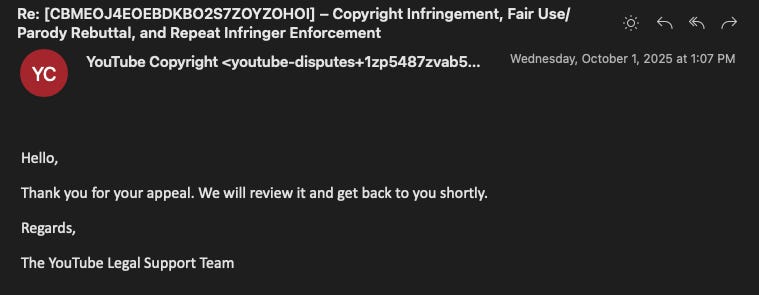
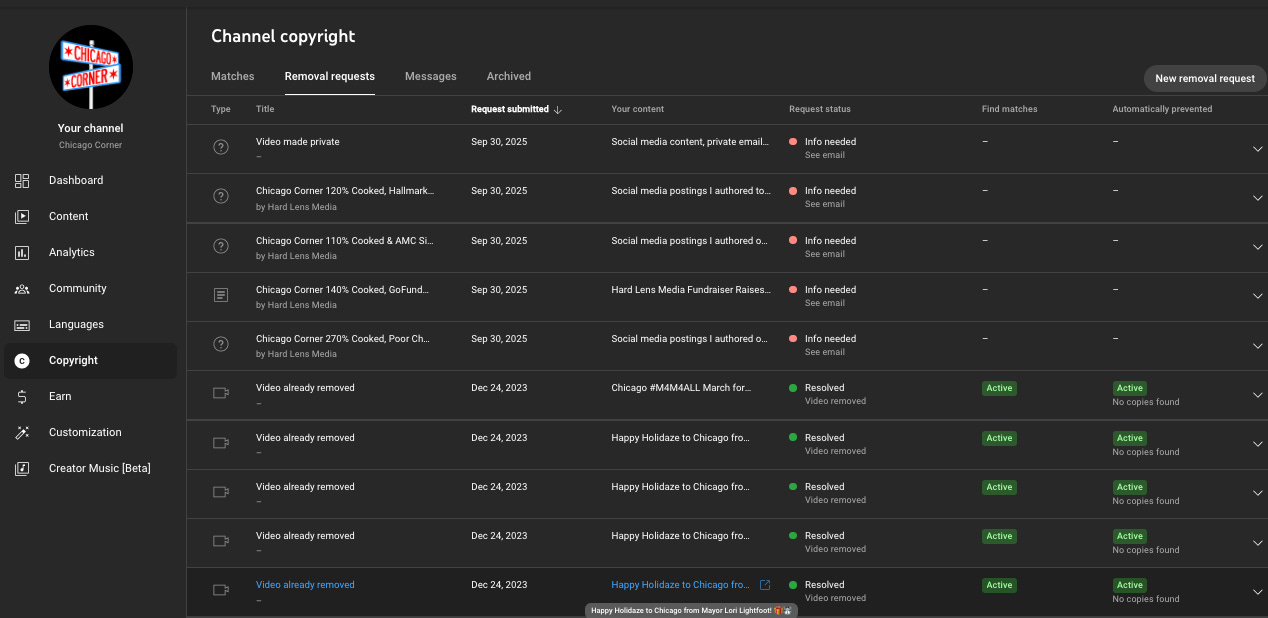

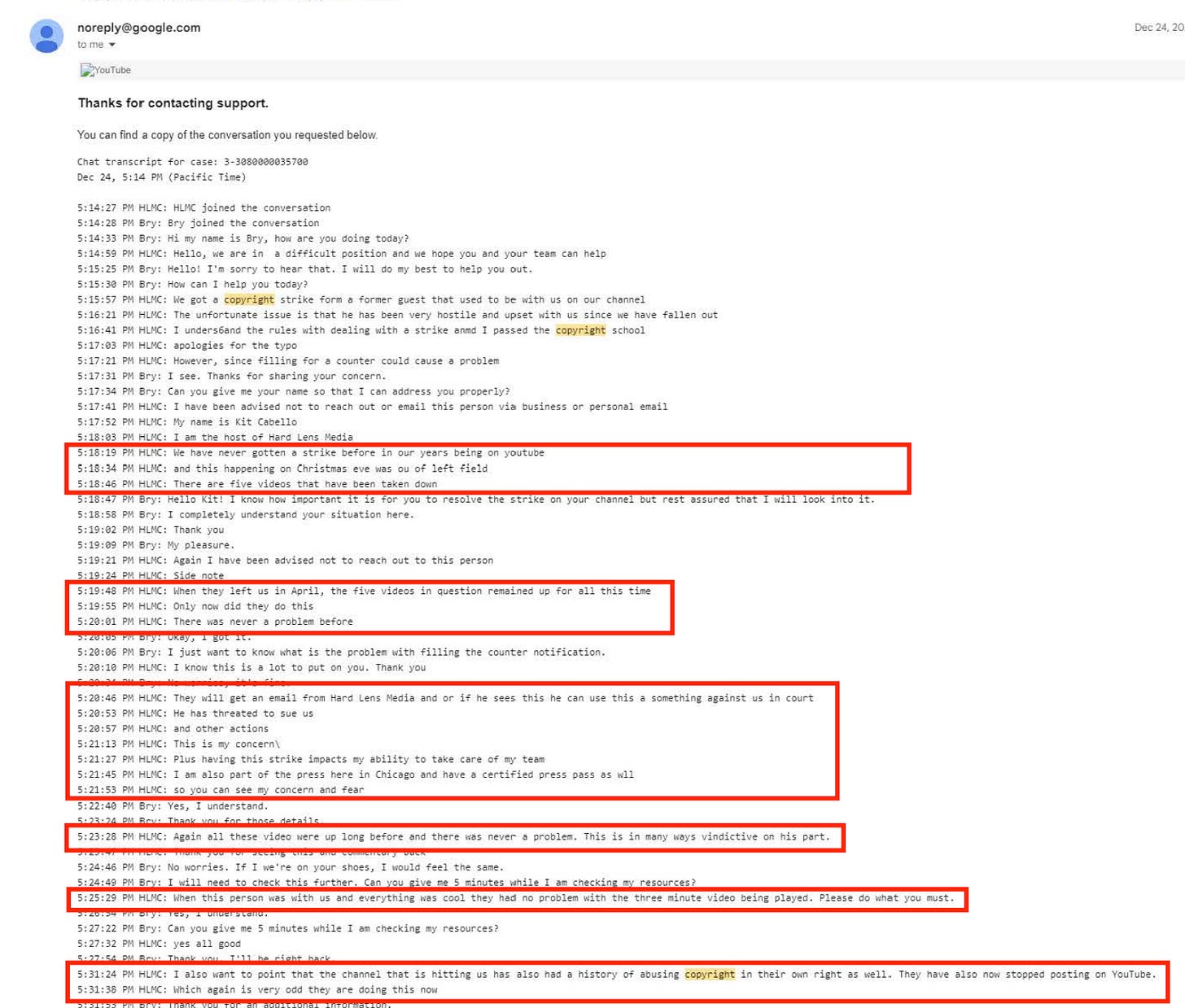

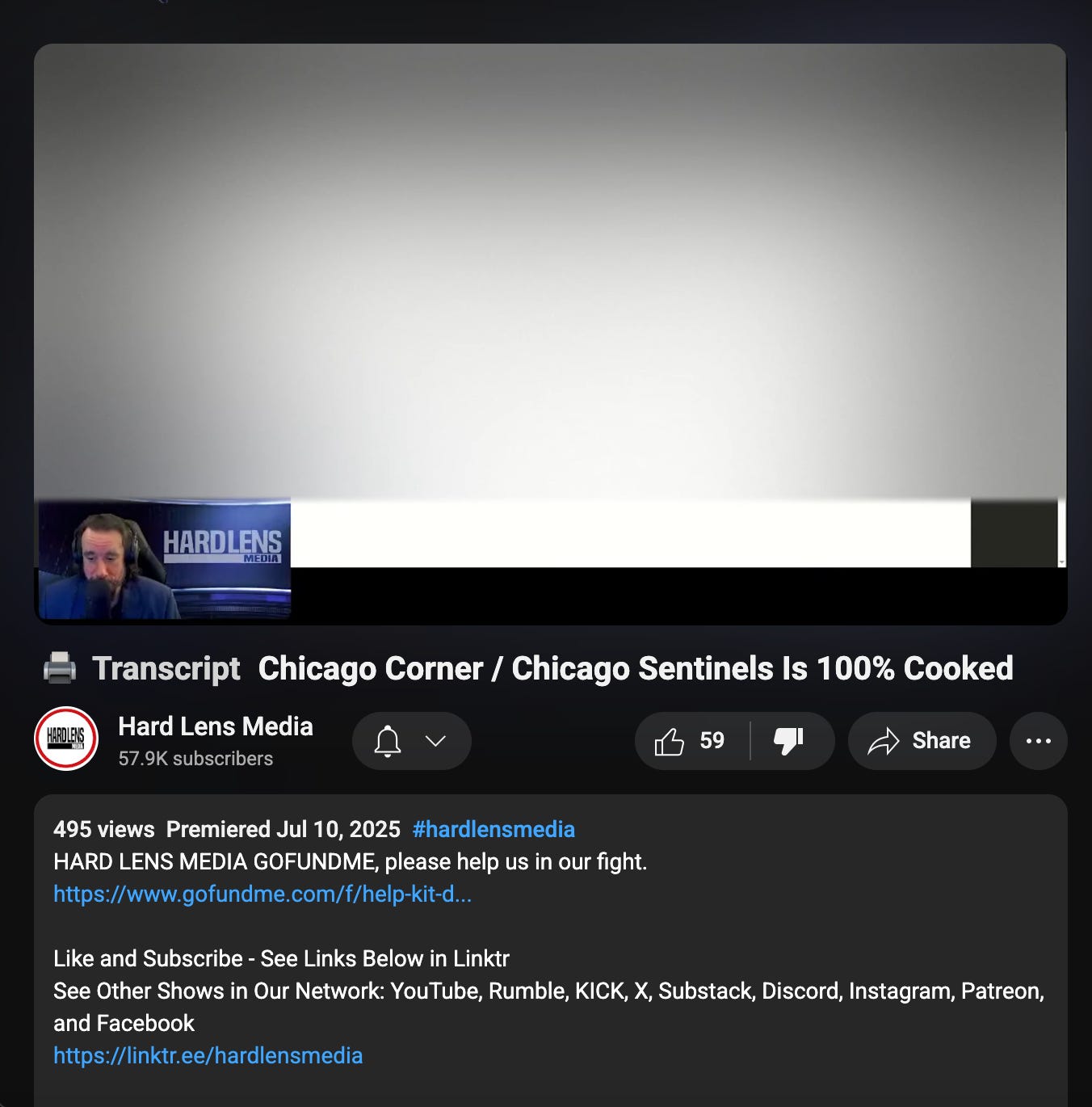
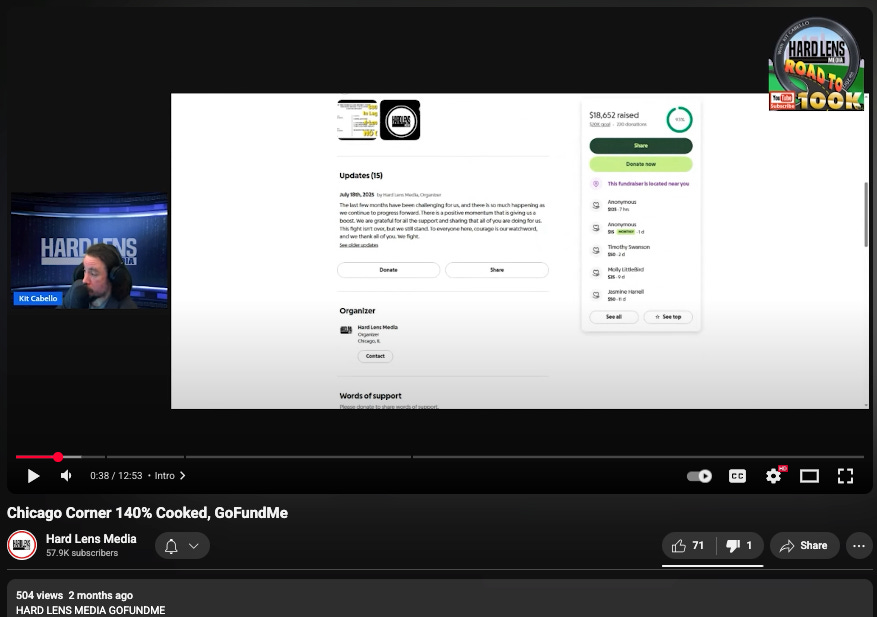
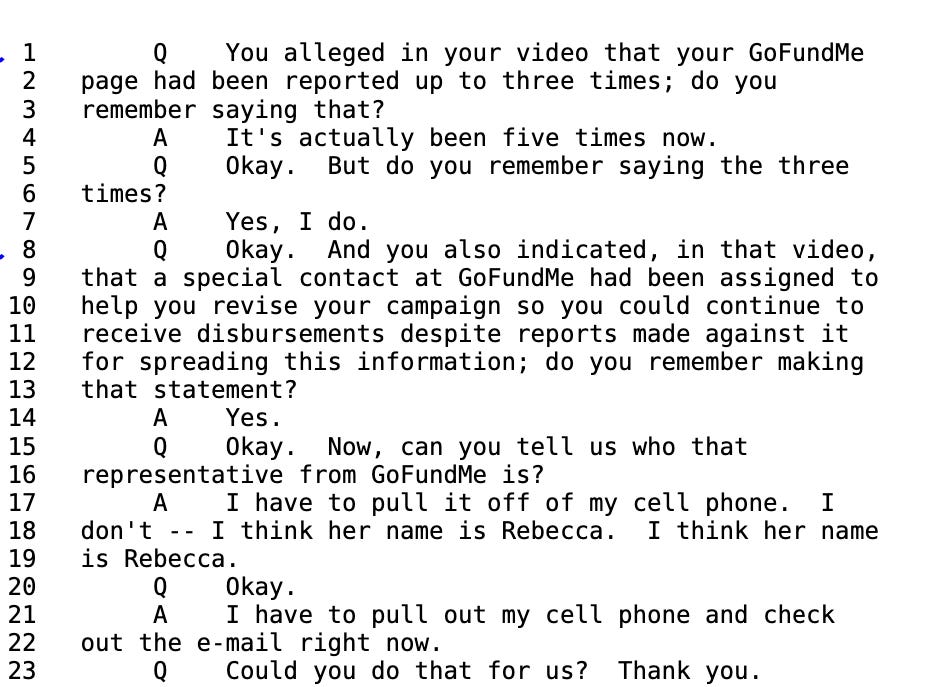
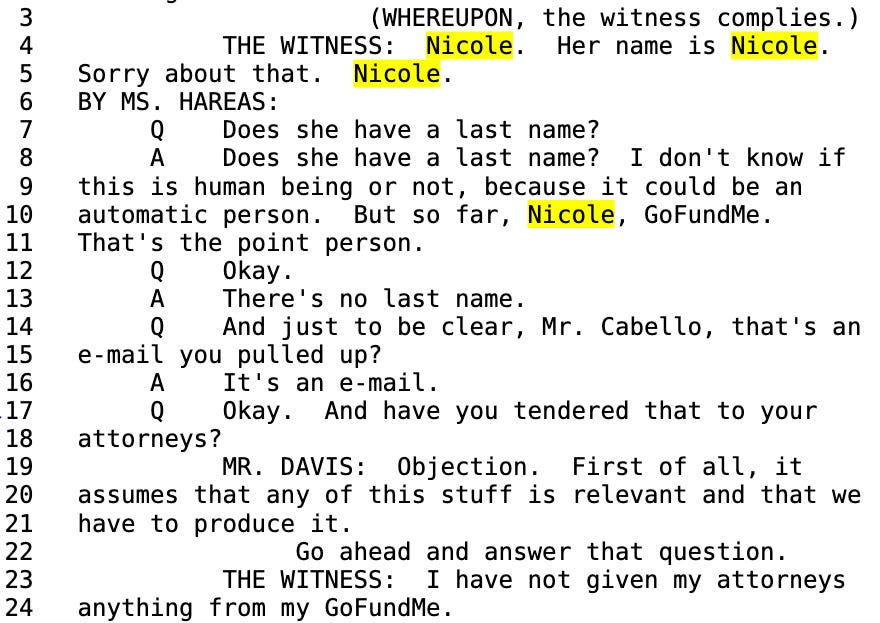
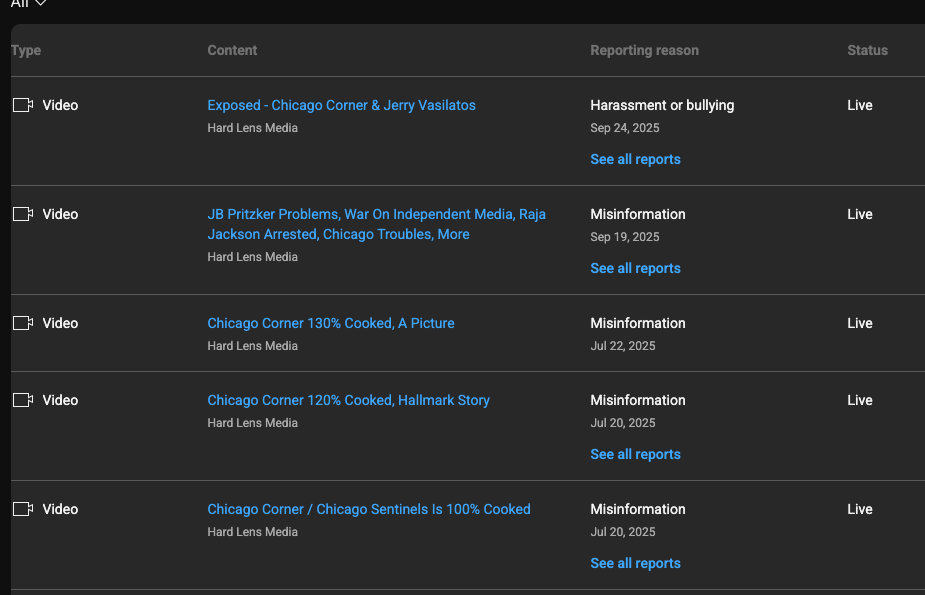
🤣🤣🤣🤣🤣🤣🤣🤣🤣🤣🤣🤣🤣
Thanks, I needed a good laugh. 🤣
Let me guess:
After your lawsuits against HLM are concluded, you are going to sue YouTube and GoFundMe for allowing "defamatory" content, right Jerry? 🤦🏻♂️